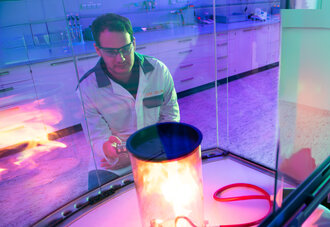Research themes

Our research activities can be assigned to six interdisciplinary research areas, which reflect the thematic breadth of research at HFU.
HFU is also represented on the research map of the German Rectors' Conference with the large and powerful focal points of production technology, microsystems technology and health & medical technology. The research map only presents outstanding research priorities at German universities that meet certain performance criteria.
The interdisciplinary innovation and transfer partnership CoHMed - Connected Health in Medical Mountains is funded as part of the BMBF's funding measure "Strong Universities of Applied Sciences - Impulse for the Region (FH-Impuls)". HFU is one of ten universities nationwide to receive funding under this programme

